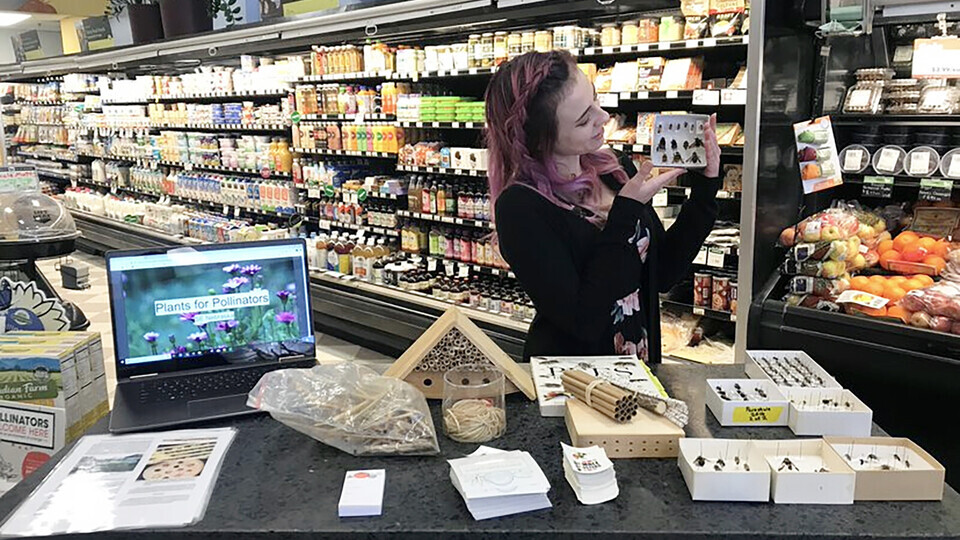
Lincoln, Neb. —Many kids dream of becoming veterinarians when they grow up, but most probably don’t consider their patients may eventually include bees.
Courtney Wallner, a senior insect science and pre-veterinary medicine co-major from near Chicago, is trying to change that.
Wallner decided to make the University of Nebraska–Lincoln her second home after falling in love with the campus. At the start of her freshman year, she knew she wanted to major in pre-veterinary medicine but was not sure of her precise career path. In a class one day, her professor announced that a colleague, Doug Golick, was looking for a student worker.
Wallner decided to email Golick, an associate professor of entomology with teaching and extension appointments. Wallner began working alongside Golick as a research assistant developing different computer design-aided insect shells to show students how different shells and shapes of insects can influence movement.
“I enjoyed the work I was doing there, I thought it was really interesting,” said Wallner. “I just felt like I had a place immediately.”
Alongside the work she was performing with Golick, Wallner also became a teaching assistant for the introduction to insect identification class.
In her second year working for Golick, Wallner worked in the East Campus pollinator garden and helped a graduate student with a project looking at native bee diversity on native plants in urban areas. When the graduate student was unable to speak at an event, Wallner did instead. She spent two days at Open Harvest, a co-operative grocery store in Lincoln, talking about native bees, their habitats and native bee health. That was all it took — she fell in love with extension and teaching others about bees.
During this time, Wallner started thinking about pursuing veterinary care for insects. She got involved in veterinary care for insects and conservation, specifically with the Salt Creek Tiger Beetle. However, after doing native bee keeping, she began to become more interested in keeping managed honeybees. She learned that honeybees are classified as food-producing animals, yet few veterinary services exist for bees. Wallner decided to investigate why that was.
Wallner participated in the university’s Undergraduate Creative Activities and Research Experience program, which provides students with funding to perform their own research. Her project entails surveying American veterinarians on their knowledge of bees, what is preventing them from working with bees, and whether they think there is a future of honeybee medicine in American veterinary medicine. By learning more about American veterinarians’ perspectives, Wallner hopes to understand what the future of bee veterinary care might look like.
As she approaches her graduation from Nebraska, Wallner will retire the titles of teaching assistant, research assistant, outreach participant and undergraduate entomology student and gain the title of veterinary school student at the Cummings School of Veterinary Medicine at Tufts University in North Grafton, Massachusetts. She hopes to continue in the areas of curriculum development and teaching.
“This department has been absolutely instrumental in my success and I will attribute almost all of it entirely to that department specifically,” Wallner said. “I 100% think if I wasn’t part of the entomology department, I wouldn’t have gotten into vet school at all.”







